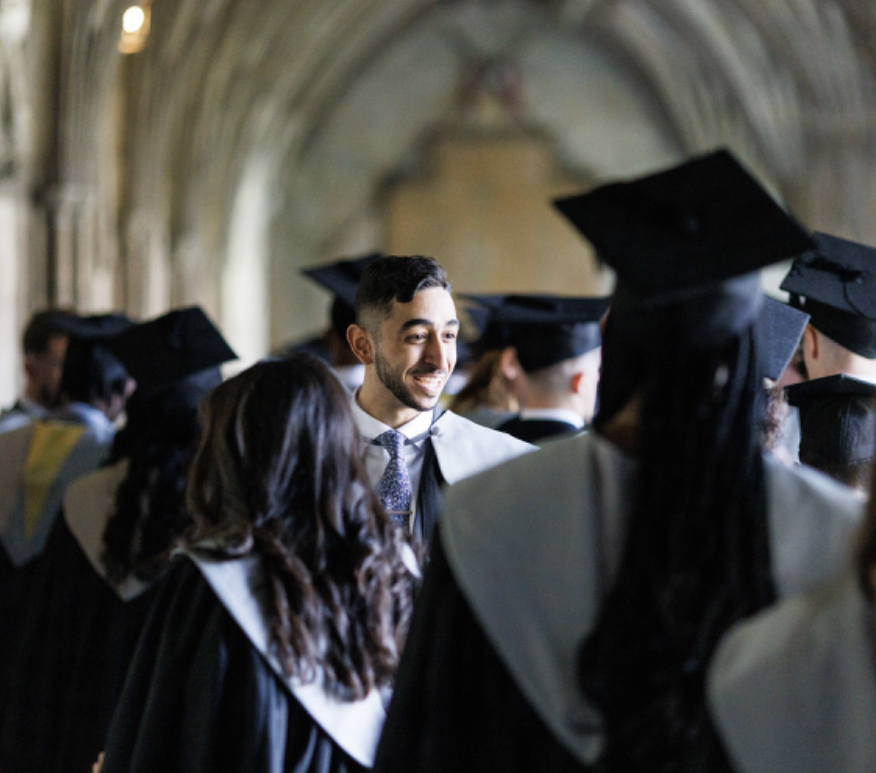Q&A with recent graduate Mohamed Ali about his law studies and career trajectory
Tell us about your further studies since graduating with your undergraduate degree from Kent.
Upon my return home, I’ve started studying for the Sharia Law exam which is required by all foreign law students to qualify them to be a lawyer in Bahrain. The exam includes subjects such as Family Law, inheritance, Islamic Law, etc. accordingly, potential Bahraini lawyers will be able to navigate the law adequately, which subscribes to the Islamic doctrine. I’m finding the shift from studying in English to Arabic quite hard, but if one is comfortable treading new waters, he will be a master of the sea!
Can you tell us a bit about your current job?
The role I have currently has little to do with the law at face value; my role as a Public Information and Relations Officer requires extensive knowledge in Project Management, Media, and Research, although my degree in Law allows me to help with current contract disputes and legal issues that my company faces. My job includes keeping the Secretary General up to date with major news in all the news in Bahrain, UAE and Qatar, although we cover everything of interest to Secretary General Antonio Guterres in the GCC and beyond, as well as managing projects that align with the UN’s Sustainable Development Goals. I’ve been in the United Nations officially for a few weeks now, but I’ve been involved with them in Humanitarian work for years, and I hope that continues for the years to come!
Can you tell us about other roles you have had that helped either in your studies or to reach your current role?
Working in the Kent Law Clinic helped tremendously in gaining the required patience to pursue a career involving research. Most of the time during Uni students research for essays and exams, and to be able to be patient while scouring the internet is a skill one needs to learn.
I was team captain of an amateur football club which involves more than just team management, it also includes contacting countless local businesses for sponsorships, requesting quotations for events and products, and most importantly, relationship counseling. Having the honour of captaincy is something I’m eternally grateful for, I learned how to have an objective outlook, and to not buckle or yield when faced with negative outcomes one faces.
These duties, although not specifically helpful in clarifying my career path, helped me build a character that fits most job requirements everywhere around the world.
Can you explain how your time at KLS contributed to your career trajectory?
Kent Law School doesn’t limit its teachings to the law. It attempts to undertake a subjective point of view such that the students can connect the law with the current issues of our time. Whichever module a student takes, they can expect a high degree of practicality. Additionally, the approach KLS takes equips its students to be major critical thinkers, able to connect the law to all walks of life. This, I believe, has helped me the most in gaining the job I have currently, and will continue to help in the future in everything I do.
Do you have any advice for anyone considering studying law and particularly wondering what sort of career they could have after graduation?
Use your time to build your character in Kent; KLS, and the University as a whole, provides so many opportunities for you to explore and build yourself. Imagine yourself as a soft piece of clay and the opportunities provided are your sculptors, don’t limit yourself to studying, put yourself out there and begin sculpting.
And, if you don’t like reading, learn to love it, you’ll be spending more time in front of your books than your own family. You’ll experience lots of clashing ideas which you’ll have to be open to learning, try your best to have an open mind, only then will you gain the most out of your law degree. You won’t be done even after you’ve obtained your law degree, you can expect a few more years of studying depending on what you’re pursuing.

